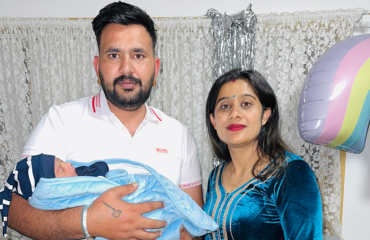‘People always think my interest in dying and euthanasia must stem from a personal experience. That assumption shows just how far removed we’ve become from death.
My PhD was inspired by some research I did on the architecture of cemeteries for my master’s degree. I became curious about how our ideas of death and dying have changed over time. I began to wonder where this idea of a medically-assisted death came from and why it’s now seen as a good way to die.

The word “euthanasia” comes from the Greek “good death”. Nowadays, we associate euthanasia with medically assisted – and painless – death but for centuries it meant a death “blessed by God” and could well involve pain.
Pain was considered a punishment for sin and an avenue for redemption. It was seen as an opportunity to become closer to God by imitating Christ’s suffering on the cross.
Euthanasia only began referring to a painless death brought on by a lethal dose of drugs towards the end of the 19th century.
My thesis traces the increasingly medicalised care of the dying in the 19th and 20th centuries and the parallel rise of euthanasia activism.
Well into the 19th century, death was essentially a spiritual ordeal managed by families and priests. Doctors were superfluous.
During the Victorian era, particularly after the revolution in anaesthetics mid-century, doctors began staying with the dying to deliver opiates that relieved pain and suffering.
Around the same time, the first proposal was put forward arguing it should be legal for a doctor to administer a lethal dose of drugs to someone who is terminally ill.
I wanted to explore this paradox in my research. Why, right when doctors were beginning to relieve pain at the deathbed, were the first euthanasia advocates saying, “death’s so terrible and painful we should allow doctors to give patients a lethal dose of chloroform or opiates”?
To understand why people started advocating for euthanasia, I used Foucault’s theory of genealogy to look at how our ideas about pain and suffering have changed over the past 200 years. Foucault argues history can help us critique the present by making accepted practices and feelings – what we consider normal or natural – foreign and unfamiliar.
For much of the 1800s it was thought saving a life involved inflicting pain. Before, anaesthetic surgery of course involved terrible pain. Procedures like bloodletting, cautery and purging were, in part, used because pain was thought to have healing functions.
Today, we are seeing palliative doctors controlling pain at the end of life to an extent that was once unimaginable and yet we are more anxious about the pain of dying than ever before.
Caring for the dying and those in pain was considered an important moral and social duty. It was understood people should help those who were suffering and through this learn how to die a good religious death.
The idea that pain and being in pain is undignified is very modern. Our understanding began changing during the 19th century. Pain came to be seen as degrading and dehumanising — not just for the person suffering, but even for witnesses.
To see pain and suffering was considered unsightly and offensive. Being near the dying was thought to worry people and make them anxious. Children, who were once encouraged to visit dying relatives and friends, were now shielded from pain and suffering.
My thesis speculates that the introduction of anaesthetic and our reduced exposure to pain brought on this anxiety around death and dying.
Today, we are seeing palliative doctors controlling pain at the end of life to an extent that was once unimaginable and yet we are more anxious about the pain of dying than ever before.
In Western developed countries – where we witness less death both geographically and historically – we are so anxious about pain and suffering we are suggesting the only solution is a doctor kills us.

My thesis doesn’t argue for one side or the other. In fact, I find it depressing when any public discussion about improving the experience of dying is reduced to a debate about euthanasia in the opinion pages.
In the scientific community there’s a consensus our experience of pain and suffering isn’t simply biological. It’s related to our ideas about it – cultural beliefs, family involvement, fear and depression around dying — as well as the impact of socio-economic factors.
There are so many interesting and innovative approaches to dying. I think there are more productive ways to talk about how we can help.
I hope my research gives our ideas about death and dying a history. It’s quite a recent thing to believe having a doctor at our deathbed administering lots of drugs is a “good death”.
Sometimes, I think if an alien came to earth and looked around they’d think it was peculiar that all these people in developed Western countries are saying, “we need doctors to give us a lethal dose of medicine”. I guess I wanted to capture something of that peculiarity.’
► Caitlin Mahar graduated PhD last year. Her research is titled: ‘The good death: historicising euthanasia in Australia’.
* My PhD is an irregular series in which The Citizen speaks with recent Melbourne University PhD graduates.


